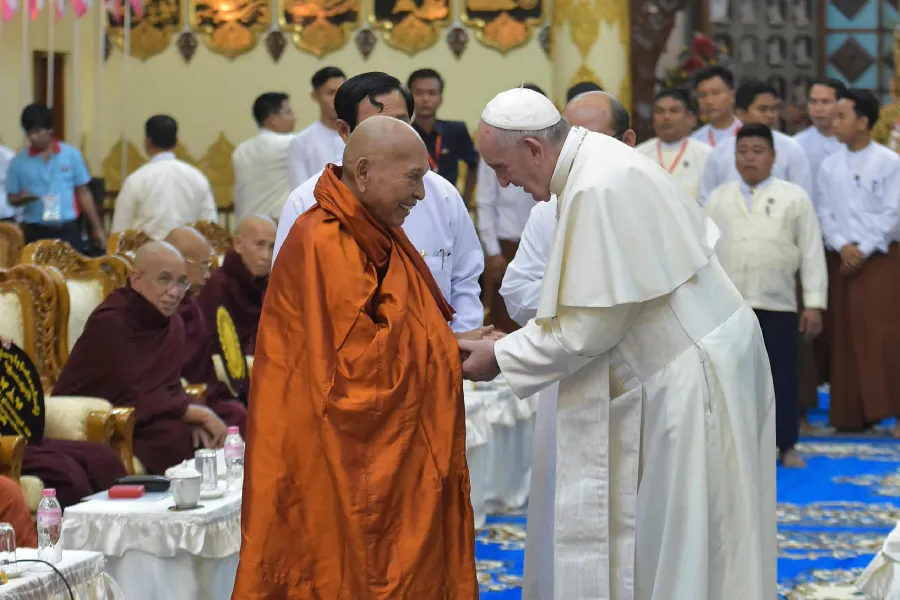Vatican to Buddhists: May the Pandemic ‘Unite Us in Service’
The Vatican has sent annual messages to Buddhists for more than 25 years on the feast of Vesakh, which commemorates the birth, enlightenment, and death of Buddha.

VATICAN CITY — The Vatican said Wednesday that it hopes the coronavirus pandemic will “further unite” Catholics and Buddhists in service of the suffering.
In its annual message for the Buddhist feast of Vesakh, issued May 26, the Pontifical Council for Interreligious Dialogue said that the virus challenged followers of all religions to find new ways of serving humanity together.
“May this dramatic situation of the COVID-19 pandemic strengthen our bonds of friendship and further unite us in service to the human family, adopting ‘a culture of dialogue as the path, mutual cooperation as the code of conduct; reciprocal understanding as the method and standard,’” the pontifical council said, quoting from Pope Francis’ latest encyclical, “Fratelli tutti.”
The Vatican has sent annual messages to Buddhists for more than 25 years on the feast of Vesakh, which commemorates the birth, enlightenment, and death of Buddha.
The feast, also known as Hanamatsuri, is celebrated on May 26 this year by the majority of countries with Buddhist traditions.
According to the Pew Research Center, around 7% of the world’s population is Buddhist and half of the world’s Buddhists live in China.
The Vatican’s message was signed by the pontifical council’s president, Cardinal Miguel Ángel Ayuso Guixot and secretary, Msgr. Indunil Janakaratne Kodithuwakku Kankanamalage.
It said: “The suffering caused by the COVID-19 pandemic has made us aware of our shared vulnerability and interdependence. We are called to discover and practice the solidarity enshrined in our respective religious traditions.”
It continued: “The Buddhist teaching on Brahma Viharas (Four Heavenly Abodes or Virtues) offers us a timeless message of solidarity and active care. In speaking about mettā (loving kindness), it exhorts followers to extend boundless love to all. ‘As a mother even with her life protects her only child, so let one cultivate immeasurable loving-kindness towards all living beings.’”
“As the Buddha taught, practitioners are equally encouraged to ‘make haste in doing good deeds; one should restrain one’s mind from evil; for the mind of one who is slow in doing good tends to take delight in doing evil.’”












